Andy Griffiths dives into Great Book Swap: wild tales, cultural treasures
Join Treehouse author Andy Griffiths as he reveals the magic of the Great Book Swap and its impact on kids in Australia’s remote communities
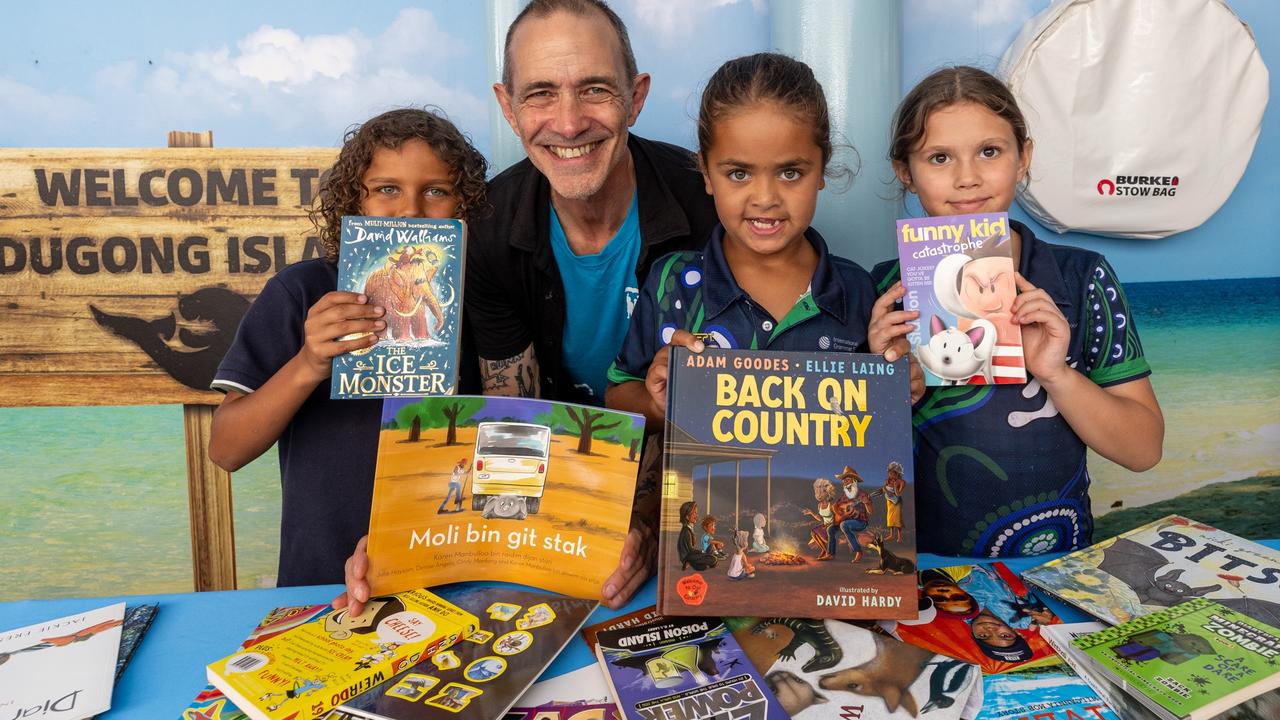
READING LEVEL: GREEN
Andy Griffiths, the acclaimed* author behind the Treehouse series, is also a passionate supporter of the Indigenous* Literacy Foundation.
In the following interview with (Kids News editor Diana Jenkins), Griffiths discusses the Great Book Swap, an initiative* that aims to raise $180,000 this year to provide 18,000 new books to children in remote* Australian communities.
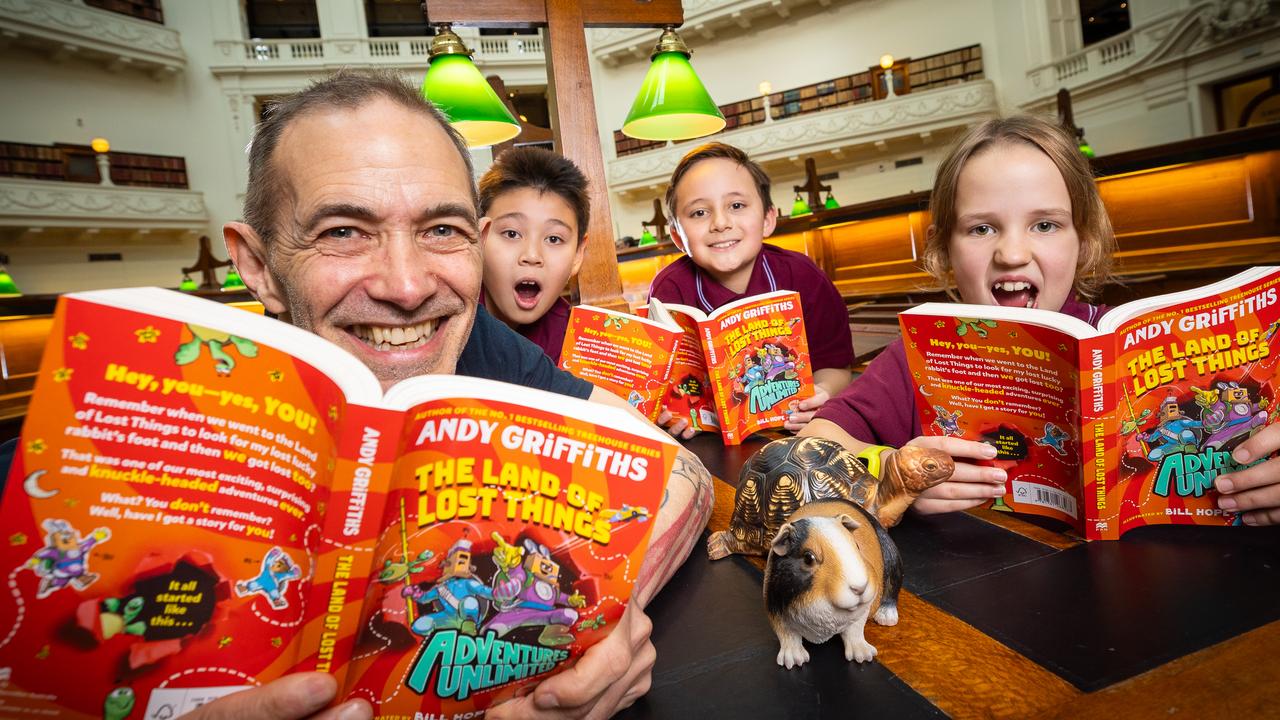
He shares insights on why animals are a central theme in his stories, the value of bilingual books and how the Great Book Swap supports literacy and cultural enrichment.
Discover why this initiative matters and how Andy’s involvement is making a difference.
DJ: As anyone who has read your long-running Treehouse series knows, animals play a really central role in your fiction* (just ask Jill!). Animals are always hugely significant in First Nations culture and art – why do you think animals have such a powerful appeal to kids and what made the aquarium* the perfect venue?
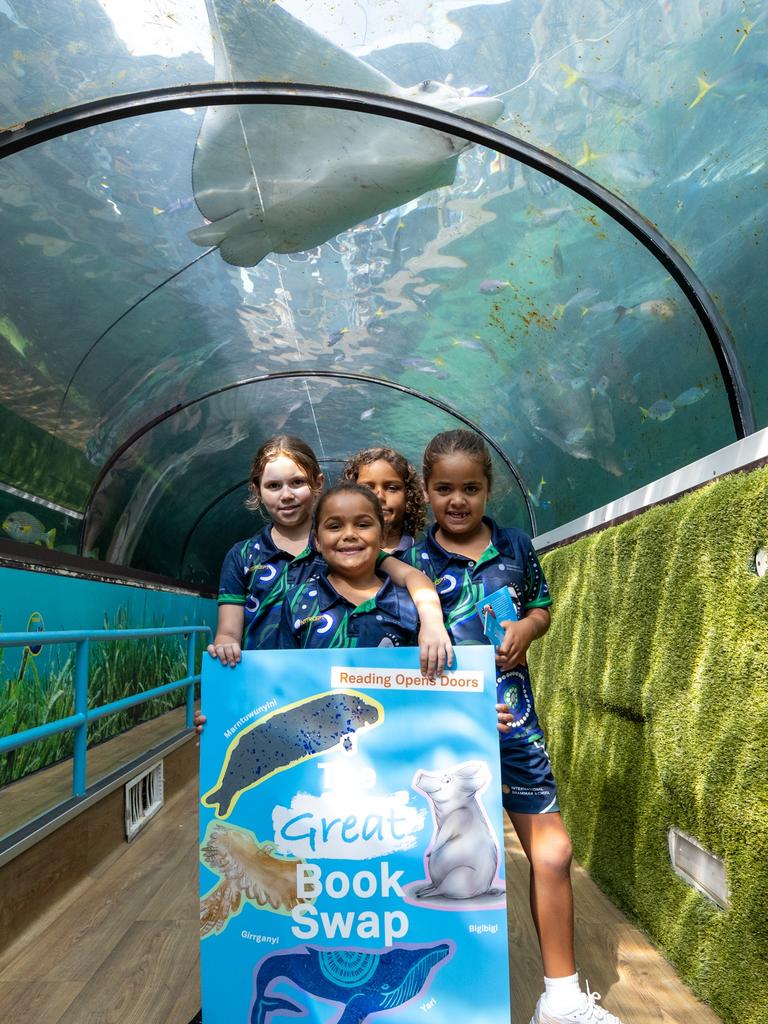
AG: Indigenous culture teaches us that everything is connected. Humans are not separate from the land, or indeed, other animals. As such I think we recognise* various aspects of our own personalities reflected in animals in more simple and obvious ways, and as such they represent very fertile* subjects for our imaginations to base stories on.
The aquarium* was an opportunity to get close to many different animals and to stimulate wonder, laughter and surprise — and connect with Indigenous stories ILF publishes. And the dugong features as one of the four Language Houses (represented by animals) in one of the Great Book Swap’s featured books, Tiwi Seasons With Marius.
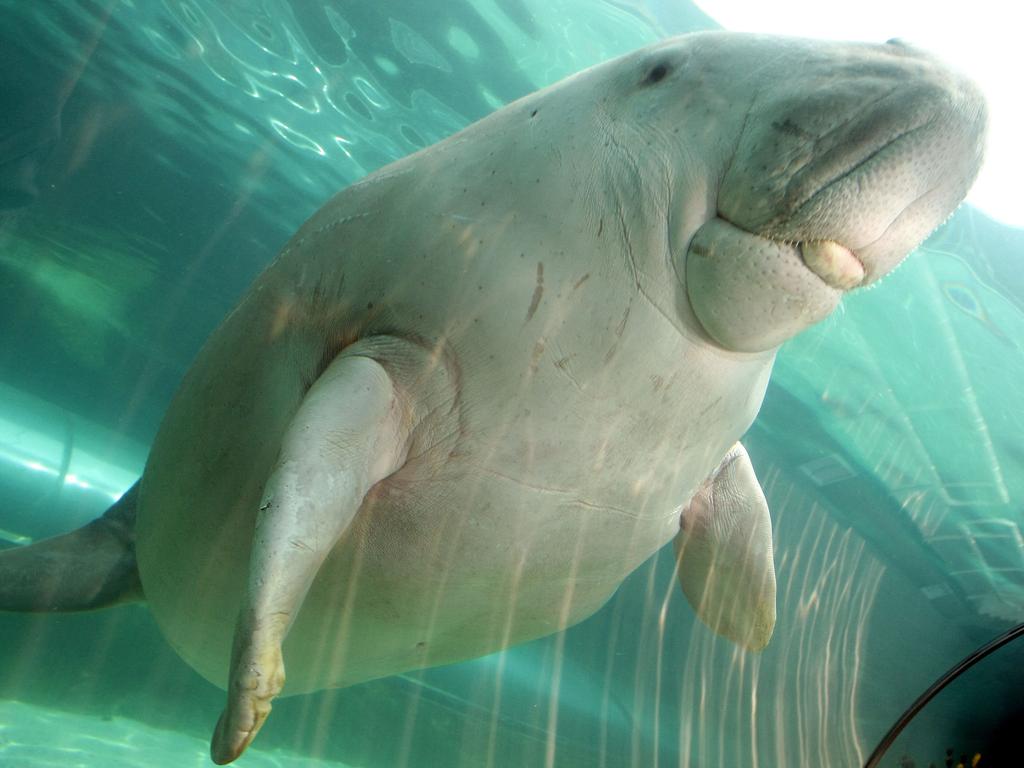
DJ. Thanks to the work of the ILF and its partners, we’re seeing many more bilingual books than existed certainly when I was a kid, when we really did not get the exposure to First Nations culture that happily exists today. What is the two-way* literary* and cultural enrichment* for First Nations and non-Indigenous Australian kids that is at the heart of these books?
AG: To encounter different ways of living, being and seeing the world helps to expand our sense of what it is to be human and to understand that there are many ways of being in the world.
Bilingual stories help to build a stronger bridge of understanding between cultures which can only be beneficial to everyone as we figure out better ways to live and relate to each other, no matter where we live.
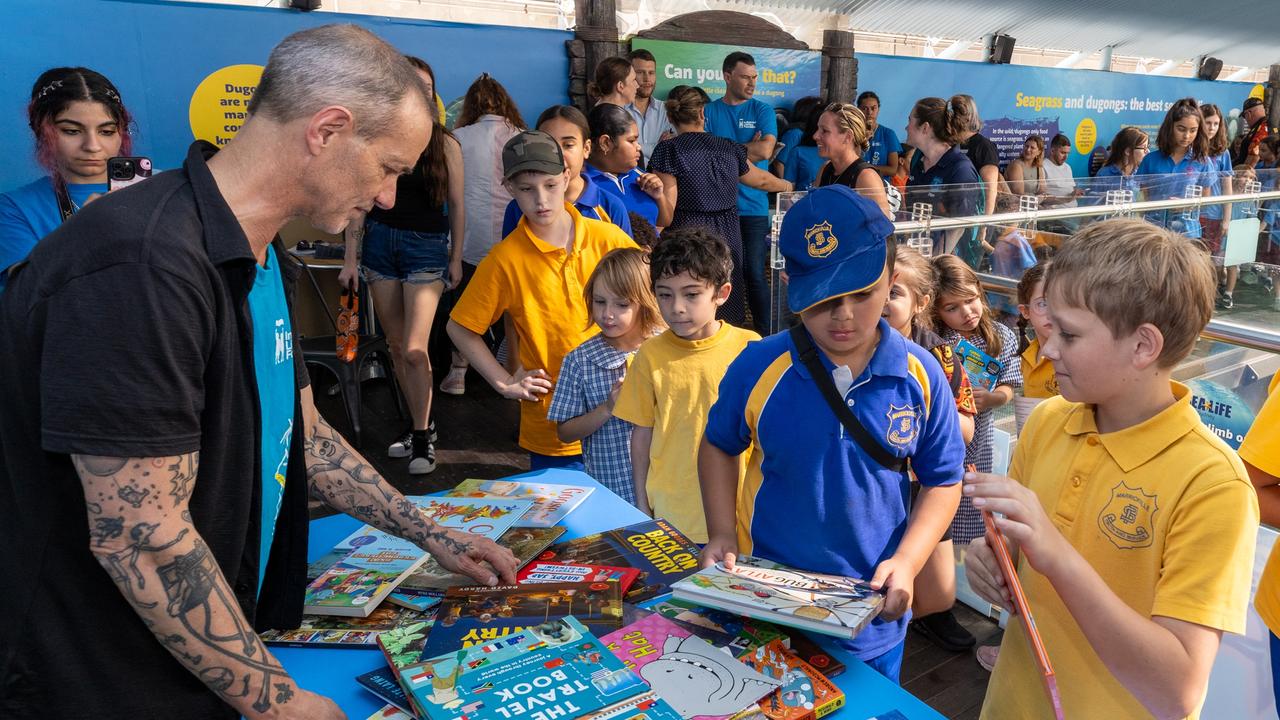
DJ: What do you learn about literacy, imagination* and improved outcomes thanks to your work as an ILF Lifetime Ambassador?
AG: While growing up in a remote Community might appear to be a very different experience to living in the middle of a busy city, I’ve learned that the kids in remote Communities are no less intelligent, curious, laughter-loving or receptive* to books and stories than their city-dwelling* cousins.
No matter where they live all kids need — and deserve — access to books that help to fire their imaginations and strengthen their literacy skills.
DJ: What is your favourite thing about meeting book-loving First Nations kids from around Australia and why is the Great Books Swap something all Aussie kids should get excited about?
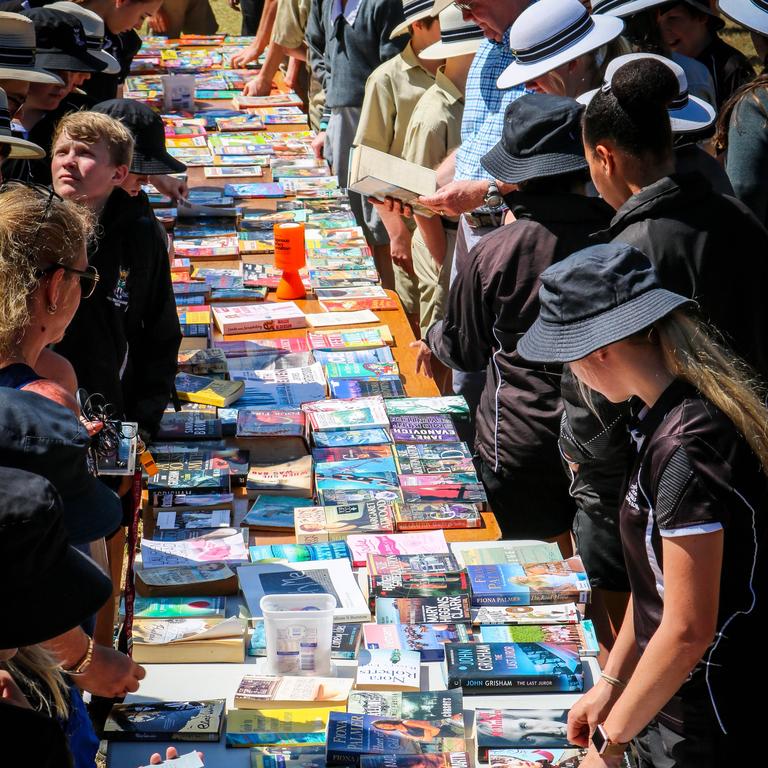
AG: My favourite thing about meeting First Nations children is to hear their stories of floods, fishing trips and close encounters with crocodiles. The Great Book Swap is an opportunity for all children to swap a preloved book of their own for somebody else’s and, while experiencing the fun of experiencing a new story, helping to ensure that kids in remote Communities will be able to do the same with the books that the funds raised help to provide.
DJ: There is not one language in First Nations culture the way there is in, say, Maori culture in NZ. What challenges and benefits does that diversity* bring to kids and what are the favourite words you have learned?
AG: The enormous* number of First Nations languages is definitely a challenge but one that the ILF is meeting by the provision of bilingual editions in its Community Publishing programs. Different languages all represent slightly different ways of seeing the world, so having access to works produced with all these slightly different points of view can be a source of enrichment for all of us. My favourite word at the moment is Marntuwunyini (pronounced Marn-too-woon-yin-ee) which is the Tiwi language word for ‘dugong’.
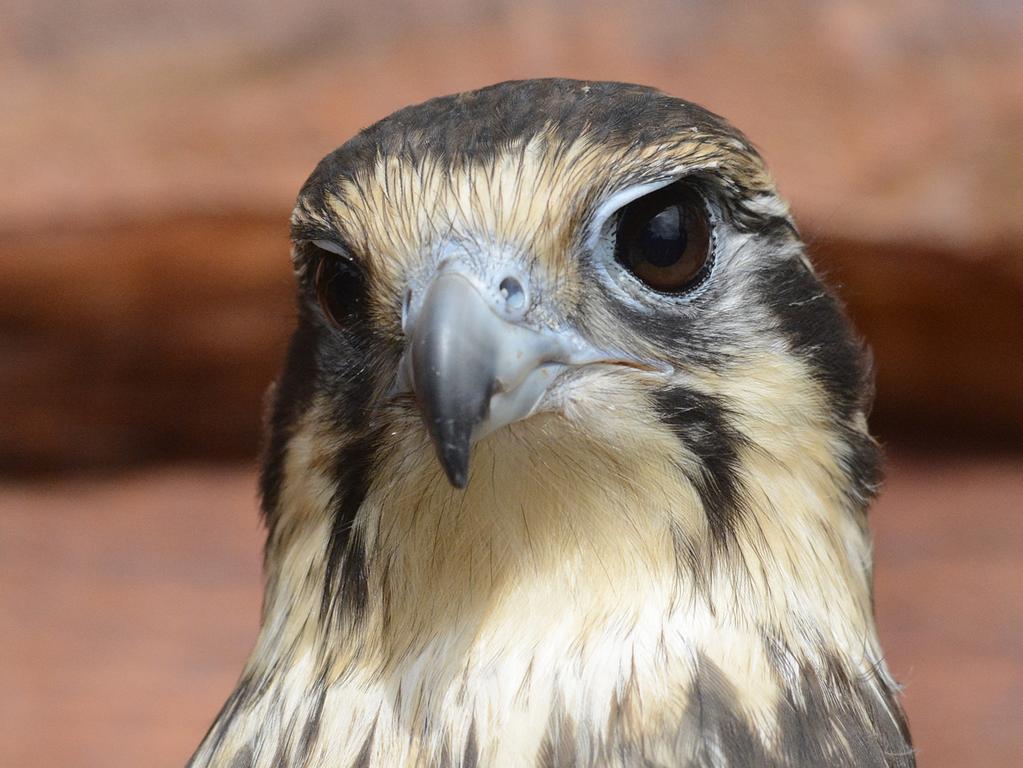
DJ: Anything else you think kids would really love to know and probably don’t?
AG: The brown falcon (girrganyi) from Bunuba Country likes to drop burning sticks into the grass to set it on fire and flush out the small mammals and reptiles that it likes to feed on. So if you see girrganyi coming with a burning stick in its talons*, RUN!!!
To register for the ILF’s Great Book Swap and to find out more visit greatbookswap.org.au
GLOSSARY
- acclaimed: praised or recognised for doing something well
- Indigenous: relating to the original people of a place
- initiative: a new plan or action to achieve a goal
- remote: far away from cities and towns
- enrichment: making something better or more valuable
- fiction: stories that are made up and not real
- aquarium: a place where fish and other water animals are kept
- recognise: to see or understand something as familiar
- fertile: able to produce many ideas or things
- imagination: the ability to create ideas or pictures in your mind
- two-way: involving both sides or directions
- literary: related to writing or literature
- dwelling: to live in a place
- receptive: open to new ideas or suggestions
- diversity: having a variety of different types
- enormous: very large
- talons: the sharp claws of a bird of prey
EXTRA READING
Song every Australian should know
School brings class to the outback
QUICK QUIZ
- What is the main goal of the Great Book Swap this year?
- Why are animals an important part of Andy Griffiths’ Treehouse series?
- What does Indigenous culture teach us about connections between humans, land, and animals?
- What is one benefit of bilingual books mentioned in the story?
- What does the brown falcon (girrganyi) do with burning sticks?
LISTEN TO THIS STORY
CLASSROOM ACTIVITIES
1. What would happen?
Write a story about what would happen if Girriganyi became your class pet or animal. Don’t forget to include how Girriganyi came to your class!
Time: allow at least 20 minutes to complete this activity
Curriculum Links: English
2. Extension
Imagine that our Kids News reporter asked Andy this question: “Andy, this is the Digital Age, why should we bother with books?”
Write the answer that you think that Andy would give. Remember that Andy wants to be as convincing as possible.
Time: allow at least 45 minutes to complete this activity
Curriculum Links: English, Personal and Social Capability
VCOP ACTIVITY
Vocabulary recycle
There is some vivid vocabulary being used in the article, and I am not just talking about the glossary words. Go through the article and highlight the high-level language that you are impressed by in yellow.
See if you can borrow two of these wow words to reuse in your own way.
Remember vocabulary is a great way to connect with the audience, but you need to think about who your audience is so you make great word choices.
Who will the audience be in your recycled sentences?

